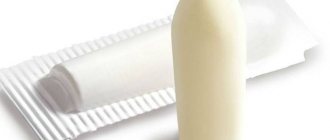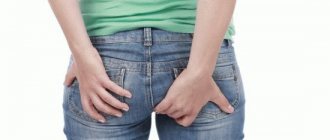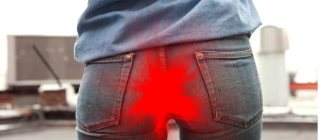Normal or constipated?
The frequency and consistency of stool is one of the indicators of the normal physical development of a baby, so it is not surprising that the contents of a diaper are a hot topic for mothers of infants. Causes of concern for young parents may be a delay in bowel movement in the baby for a couple of days, an insufficient (in the mother’s opinion) amount of feces, changes in its color, smell, and thickness. However, you should not sound the alarm and use various remedies for constipation for a baby who feels great, but does not poop as often as the child of a neighbor (friend, acquaintance). Since for children during breastfeeding there are no norms and standards regarding the frequency of bowel movements.
It's all about breast milk, which, unlike an adapted formula, changes daily in composition, fat percentage, density and hormonal levels. Therefore, at one time the baby may have stool after each feeding, and then once every few days, and this is normal. If the baby has no signs of intoxication, dehydration, increased moodiness or, on the contrary, lethargy and apathy, bowel retention for 4 days is not a pathology. On the contrary, this indicates that mother’s milk is completely absorbed by the body and the baby simply has nothing to put on the diaper.
You should talk about constipation only if the lack of stool bothers not only the parents, but also the child. It is not difficult to understand this if you know the main symptoms of constipation in infants.
In breastfed children, the frequency of stool can be from 5-6 times a day, up to 1 time a week. However, the diagnosis of constipation is not made if the child feels well
Is it possible to give an enema to a newborn or one month old baby?
After birth, a newborn requires breastfeeding, which provides the tiny body with all the necessary substances. Pediatricians consider the normal number of daily bowel movements to be from 1 to 10 times. When complementary foods are introduced, the child often has problems with excreting feces that last for several days.
According to Dr. Komarovsky, if the tummy is soft, the baby is calm, is not capricious, and the gas flows away, there is no need to immediately give an enema. This manifestation is considered a normal physiological process that does not cause discomfort to your child.
You need to start worrying when your baby's tummy feels like stone, he pouts, and turns red. When pressing on the stomach, he begins to cry and bend his knees. You can alleviate the condition with an enema, which has a cleansing effect.
You can give an enema to a newborn baby at home to enhance intestinal motility, which helps soften and remove stagnant feces. It will speed up the absorption of medications to quickly achieve a therapeutic effect.
Before starting the procedure, it is recommended to consult a doctor, read the instructions, in what cases the method is allowed, and the presence of contraindications. At the appointment, the doctor will explain how to do douching correctly, indicate the required amount of liquid to be administered, and recommend recipes for solutions.
Signs of constipation in newborns while breastfeeding
To determine constipation in breastfed children in the first year of life, a combination of several factors should be taken into account:
- Consistency of stool. A sign of constipation is hard, lumpy feces, which is unusual for infants.
- Child's behavior during defecation. Newborn babies and babies up to six months old have weak abdominal muscles, and, moreover, considering that they spend most of their time in a horizontal position, it is not strange that when defecating they experience difficulties, grunt and strain. If a child sulks several times a day, to no avail, and his stomach is hard to the touch, we can talk about constipation.
- The child's well-being. Constipation is dangerous because in the absence of stool for a long time, rotting processes occur in the intestines, poisoning the child’s body. Signs of intoxication are:
- increased body temperature;
- dry lips;
- peeling of the skin and rash;
- lack of appetite;
- lethargy and drowsiness.
In other cases, if the consistency of the stool is mushy or in the form of a soft sausage, the child grunts and sulks during bowel movements, but the rest of the time sleeps normally, eats and gains weight, a prolonged absence of stool is normal.
Causes and factors of constipation in infants
Physiological constipation in infants can occur periodically until the functioning of the gastrointestinal tract is completely improved. Concomitant factors for the development of constipation include:
- lack of fluid in the body;
- mother's milk is too fatty;
- changes in the diet of a nursing woman, consumption of foods that have a fixing effect;
- lack of mother's milk (“hunger constipation”);
- changes in the hormonal levels of a nursing woman (in this case, the mother will also have constipation);
- overfeeding the child;
- untimely introduction of complementary foods;
- disturbance of intestinal microflora;
- taking certain medications;
- weakened muscle tone in a child (hypotonia), slowing down peristalsis;
- strong tone (hypertonicity) causing spasms of intestinal smooth muscles;
- overheating of the baby.
Physiological constipation in an infant is not a disease, and when the factors that provoke its development are eliminated, stools usually return to normal. In cases where difficulty or absence of bowel movements is just a symptom of a more dangerous pathology, other signs of the disease will also be present.
Diseases in infants accompanied by constipation:
- Lactase deficiency. Accompanied by vomiting, increased gas formation, and abdominal pain.
- Rickets. Vitamin D deficiency can occur in premature babies or overweight babies. Signs of rickets are difficult to miss, since they are reflected in the baby’s appearance and body structure. In addition to constipation caused by hypotonicity and changes in microflora, symptoms of the disease include developmental delay, bone deformation, bulging abdomen and sunken chest.
- Pathologies of intestinal development, such as Hirschsprung's disease, colon duplication, formation of diverticula, tumors, bending of the intestine, causing intestinal obstruction. Accompanied by vomiting mixed with bile or feces, acute abdomen and fever.
- Diseases of the endocrine system - diabetes mellitus, hypothyroidism, adrenal insufficiency.
- Helminthic infestation - parasites secrete substances that not only poison the child’s body, but also slow down intestinal motility. Signs of helminthiasis in infants are skin rashes, slow growth and weight loss, a hard stomach and anxiety that increases in the evening.
- Neurology - accompanied by a lag in physical development, the appearance of chin tremor when crying, and frequent regurgitation.
If you notice one of the symptoms of these diseases, you should immediately seek medical help.
“Sheep feces” in a child
This type of stool indicates problems in the newborn’s body. “Sheep poop” is hard, dry, round stool that looks similar to sheep poop. Such stool occurs due to spasm of a certain area of the intestine, which prevents the normal movement of feces.
Loose stools in a breastfed baby
This problem can be caused by two types of reasons: physiological and pathological. The first group includes:
- Lack of fluid in the baby's diet;
- Dehydration;
- Physical inactivity (low physical activity of the child);
- Stress, fear;
- Taking medications (Imodium, Smecta, activated carbon);
- Dysbacteriosis. It occurs against the background of the predominance of pathogenic bacteria in the intestines.
As for pathological causes, they include:
- Stomach ulcer;
- Diabetes;
- Meningitis;
- Hypothyroidism.
Diagnostics
Before prescribing treatment, the doctor sends the baby for examination of the gastrointestinal tract; a general and biochemical blood test, a study for dysbacteriosis, and a coprogram (analysis of stool for its physical properties) may also be required. To determine the condition of the baby’s internal organs, it is necessary to undergo an ultrasound. In addition to the fact that this research method is informative, it is also absolutely painless.
Important! The most unpleasant procedure for a child is FEGDS (gastroscopy), which involves examining the state of the digestive tract by swallowing a special tube - a gastroscope.
Ultrasound of the abdominal cavity of a baby
Is it worth going to the doctor?
Before contacting a doctor, parents should:
- Adjust the baby's diet. For babies older than one year, introduce more fruits and vegetables, as well as fermented milk products. For infants, continue breastfeeding longer and introduce complementary foods in a timely manner. For artificials - give only proven high-quality mixtures.
- Establish the child's drinking regime (the baby should consume more liquid).
- Stimulate the motor activity of the baby.
- Provide a comfortable psychological atmosphere in the family.
If the measures taken have not had the desired effect even after several days, then a visit to the pediatrician is mandatory. After the pediatrician receives a complete understanding of the situation, he will prescribe all the necessary tests and types of diagnostics.
What should a mother of a baby do?
First of all, you should exclude possible factors that led to constipation, and also help the child to adjust his bowel movements on his own. Medications and enemas are used for acute and long-term constipation, to alleviate the baby’s condition; they should not be abused, as this can lead to a weakening of muscle tone and the reflex to defecation, and the problem will become chronic.
How to help your baby with constipation
According to the nature of constipation in infants, constipation can be spastic - caused by intestinal spasms, and atonic - due to decreased intestinal motility.
In the first case, the baby's tummy will be hard, and the feces will look like hard, dry balls (sheep feces). A warm compress from an ironed diaper placed on the baby’s bare tummy will help relieve the spasm. A warm bath with herbs - lemon balm, lavender, thyme, valerian and oregano - is no less effective in dealing with cramps. After your baby has taken a relaxing bath, do not put a diaper on him, blot the baby's steamed skin and do gymnastics.
The main elements of gymnastics for constipation are alternately pulling the legs bent at the knees towards the stomach, as well as the bicycle exercise. All movements are performed gently, without pressure; if the baby resists, you should not insist, because there will be no result from such activities.
If, during gymnastics, the baby begins to groan and pout, you can help him by bending two legs at once and pulling them towards his stomach, and then put a little pressure on him with his knees and hold the baby in this position.
If the baby is unable to cope on his own, you can increase the urge to defecate and facilitate the passage of accumulated gases using a pipette. To do this, remove the rubber tip from the sterile pipette, and lubricate the narrowed, smooth end with vegetable oil or glycerin. Next, holding the baby’s legs in a position pressed to the tummy with one hand, and with the other, carefully insert the tip of the pipette rectally, making scrolling movements. The maximum insertion depth should not exceed 1–1.5 cm, otherwise the rectal mucosa may be damaged.
In premature babies or babies with low weight, there is a decrease in the tone of the smooth muscles of the intestines, which makes it difficult for the movement of feces. In this case, it is recommended to do a daily tummy massage.
It is advisable to place children from 6 months on a potty with an anatomical shape, this increases pressure on the rectum and promotes, intensifies the urge, and facilitates bowel movements
Abdominal massage
To perform the massage, the baby is laid on his back, on a flat table surface, previously covered with a diaper. The procedure should not take more than 10–15 minutes.
The order of movements during massage is as follows:
- Circular, stroking movements are performed clockwise around the navel.
- Stroking the oblique abdominal muscles from the periphery to the center.
- Acupressure of the rectus abdominis muscles is performed in a circular motion with the pad of the index finger.
- The massage should be completed with the same movement as at the beginning of the procedure.
When performing a massage, make sure that the temperature in the room is within normal limits; you should also completely undress the baby so that clothes or a diaper do not hinder your movements and do not interfere with the procedure
Diet of a nursing mother
An important point in overcoming constipation is correcting the diet of a nursing mother. To normalize the stool of a breastfed baby, it is useful for the mother to eat foods rich in fiber, which stimulate intestinal function:
- Cereals - oatmeal, buckwheat.
- Fresh vegetables - cucumbers, tomatoes (only in season), carrots, cabbage, as well as salads from them, seasoned with vegetable oil. It should be noted that white cabbage increases gas formation, therefore, in case of infant colic, its use by a nursing mother is undesirable.
- Boiled vegetables - pumpkin, beets.
- Fresh fruits - green apples, apricots, plums.
- Dried fruits - dried apricots, prunes, dried apples and pears.
- Bran and bran bread.
To normalize microflora and replenish calcium reserves, fermented milk products should be present in the daily diet.
If the baby is prone to constipation, the following dishes are excluded from the nursing diet:
- fresh baked goods and pastries;
- cookies "Mriya", "Zoological"
- whole milk;
- sweets;
- semolina and rice porridge;
- Black tea;
- cocoa and chocolate;
- persimmons, bananas.
We should not forget about the drinking regime, because in addition to tea to improve lactation, it is useful for a woman to drink clean water in sufficient quantities, as well as infusions of dill and fennel seeds, which eliminate bloating in the baby and normalize digestion.
The diet of a nursing mother should not be meager and monotonous. The menu should gradually introduce various vegetables and cereals, fruits and dairy products
Safe and effective ways to stimulate bowel movements
- Tummy massage. Warm your palms, lubricate them with cosmetic oil and stroke your favorite belly clockwise with gentle pressing movements. Then place the baby on your tummy. Let him lie down and fart. You should not massage immediately after feeding, otherwise the baby may burp. Wait about an hour and proceed.
A light massage will help relieve the baby and lift his spirits.
From time immemorial, dill water was given to babies with colic.
A soft and warm diaper will relieve pain and have a stimulating effect on bowel function.
First aid for constipation and colic.
And only if these methods are unsuccessful, give an enema. I'll tell you how it was for us.
Introduction of complementary foods for infants
If a 6-month-old baby suffers from constipation, the correct introduction of complementary foods will help cope with the problem. Until recently, it was believed that the first food, in addition to mother's milk, should be vegetable and fruit purees. However, pediatricians are increasingly inclined to believe that homogenized vegetables, devoid of fiber, only overload the child’s stomach, and in combination with breast milk, even lead to constipation. Whereas fermented milk products are better tolerated by the body, do not cause allergies and normalize the composition of the intestinal microflora.
Where is the best way to start complementary feeding, the opinion of Dr. Komarovsky - video
In what cases is the procedure allowed?
When the first complementary foods are introduced, not only breast milk, but also other nutritional components begin to enter the baby’s intestines. During this period, special attention should be paid to the frequency and consistency of the infant’s stool. Sometimes complementary feeding goes well, without constipation or diarrhea. There are situations when dysbiosis develops, in different manifestations.
You can track your baby's reaction to complementary foods by bowel movements. If he has not gone to the toilet even once in a day, most likely he will have to give an enema to avoid poisoning.
You can give an enema to a newborn baby in the following situations:
- Lack of bowel movements for several days, accompanied by colic, pain, and cramps. The enema stimulates the functions of the intestinal tract and promotes the rapid removal of stagnant feces.
- Appointment of an examination of the intestines, during which an enema is required.
- For the purpose of administering medications that ensure rapid absorption, accelerating the therapeutic effect. The procedure is performed if the baby does not want to take medications by mouth.
- In case of poisoning or intoxication, by washing the pear, you can cleanse the body of toxins and waste, promoting a speedy recovery.
If you have frequent, prolonged constipation, you should go to the hospital. The pediatrician will examine the baby, collect all the necessary tests, and based on the results, identify the true cause of the pathological phenomenon.
What medicines can be given
For children of the first year of life with constipation, it is permissible to use laxatives only from the prebiotic group, based on lactulose. The active substance of such drugs is not absorbed by the human body, but once it enters the intestines, it helps to increase the volume of feces, as well as the growth of beneficial microflora. Due to the fact that the baby’s intestinal microflora begins to actively multiply in the first days of taking the drugs, bloating and increased colic may occur, so doctors recommend increasing the dosage of the drug gradually. Lactulose syrups are produced under such commercial names as Duphalac, Normaze, Lactuvit.
Another safe remedy for eliminating constipation in infants is suppositories with glycerin, which do not affect the general condition of the body, but, when administered, have an irritating effect on the receptors of the rectum, thereby stimulating the child’s urge to defecate. In addition, under the influence of body temperature, the suppositories dissolve and facilitate the passage of solid feces to the exit.
Despite the safety of use and harmlessness of the drugs described above, they can only be used if constipation in a child is the only symptom. In cases where the baby has a fever, vomiting, cramps, or severe abdominal pain, the use of such drugs is unacceptable, since constipation accompanied by such manifestations is usually caused by serious pathologies requiring surgical treatment.
Acceptable medications for constipation in infants, says Dr. Komarovsky - video
Drug treatment
Sometimes it is quite difficult to cope without the help of medications. To select the appropriate treatment, parents should go to the hospital, where a full medical examination will be carried out, including examination by a therapist, gastroenterologist and other specialists. In addition, you need to take blood, urine and stool tests. This is especially true for babies after Caesarean section and premature babies.
Treatment for constipation is usually complex. In the table you can find drugs that are used in pediatric practice when the problem develops.
| Medication group | Name | Action | Price in rubles |
| Laxatives | Microlax | Microenemas that soften stool well | 259 |
| Duphalac | Increases the number of lactobacilli, softens stool | 227 | |
| Normaze | Laxative syrup to ease bowel movements | 272 | |
| Glycelax | Softens stool and stimulates bowel movements | 144 | |
| Probiotics | Bifidumbacterin | Restores beneficial microflora of the stomach and intestines | 72 |
| Linex | Normalizes the balance of beneficial bacteria | 213 | |
| Primadophilus | Has a restorative effect on microflora | 487 | |
| Bifiform | Food supplement that restores microflora | 289 | |
| Lactobacterin | Includes beneficial bacteria | 142 | |
| Hilak forte | Restores PH, normalizes digestion | 280 | |
| Acipol | Regulates the balance of intestinal microflora | 245 | |
| Bifidum | Treats dysbiosis and its manifestations in the form of stool disorders | 104 | |
| Maxilac | Therapeutic probiotic with fast restorative effect | 399 | |
| Normobakt | Dietary supplement with beneficial bacteria for children | 408 | |
| Normoflorin | Establishes beneficial microflora | 190 | |
| Euflorina | Includes beneficial bacteria | 190 | |
| Carminatives | Espumisan | Eliminates excessive gas formation | 267 |
| Plantex | Stimulates digestion and helps relieve gas | 350 | |
| Bobotik | Relieves spasms and gas formation | 258 | |
| Simplex | Kali to relieve flatulence and colic | 314 | |
| Fennel | Water with fennel relieves colic | 20 | |
| Babycalm (Baby Calm) | Carminative, antispasmodic effect | 325 | |
| Source of lactase enzyme | Lactazar | Dietary supplement | 782 |
| Enterosorbents and enzymes | Enterosgel | Removes toxins, helps overcome gas formation | 392 |
| Creon | Includes enzymes to aid digestion | 529 |
In the table you can find a far from complete list of tablets and other dosage forms used for constipation and microflora disorders in newborns. In addition, drugs such as Narine, Elkar, Enterofuril, Enterol, Maltofer, Ursofalk, Hofitol, Vigantol, Aquadetrim and many others are often prescribed.
You might be interested in: How to stop your baby from vomiting
It is recommended to use medications among newborns strictly as prescribed by a doctor; many of them have side effects. The dose and duration of treatment are selected exclusively by a specialist.
Folk remedies
Infants in the first three months of life should not be given any herbal decoctions other than dill water or an infusion of fennel seeds. You can prepare such remedies yourself by pouring a teaspoon of seeds with a glass of boiling water and leaving for half an hour. The essential oils contained in these plants have a positive effect on intestinal motility, eliminate flatulence, and help soften stool.
Children from 6 months can be given a decoction of prunes. It's quite simple to prepare:
- One medium-sized dried plum is soaked in boiled water for 10 minutes.
- The soaked plum is cut into small pieces, removing the pit.
- The first water is drained, and the prunes are refilled with 200 ml of water and brought to a boil.
- The strained broth is diluted with boiled water 1 to 1.
- Children from 6 months are given a decoction of 1 teaspoon three times a day, before feeding, and for babies from 9 months the dosage is increased to 1 tablespoon at a time.
Prevention
In order to prevent the occurrence of constipation or eliminate existing problems, factors that contribute to stool retention in infants should be eliminated. Such methods of prevention, as well as treatment, are:
- Child nutrition. By weighing the baby before and after feeding, you can find out the one-time serving of milk. This is necessary in order to exclude causes of constipation such as overeating or lack of breast milk.
- In between feedings, you need to give the baby clean water in the amount recommended by the pediatrician.
- Baby activity. During the waking period, the child should be carried in an upright position, placed on his tummy, massage and gymnastics should be performed, thereby stimulating intestinal movement.
- The diet of a nursing mother should consist of eating foods that contain a lot of fiber and have a laxative effect.
- Persistent constipation is caused by too dry and warm air in the room, as well as overheating of the baby.
Mother's nutrition to normalize baby's stool
Green stool in a formula-fed baby
If constipation occurs in a child on breastfeeding, it is necessary to pay special attention to the mother’s nutrition. Problems with baby stool can be caused by a lack of fluid in the diet of a nursing woman, since the fat content of milk in this case increases and leads to constipation in the baby. The chemical composition of milk is negatively affected by the consumption of sweets and flour products. The absence of fruits and vegetables in the mother’s diet deprives milk of a significant share of its beneficial properties, which, in turn, can provoke not only stool retention, but also other problems.
When a baby is constipated, in addition to diet, diet and hygiene play an important role:
- Compliance with eating and feeding times. It is recommended that mother eat the daily amount in small portions several times a day. Thanks to this, the saturation of milk with nutrients will occur more evenly. The hot water mode needs to be adjusted to a similar scheme. It is advisable that the baby eats often and little by little at a strictly allotted time;
- Maintaining hygiene. In addition to wiping your breasts and washing your hands before feeding, this includes the baby’s correct attachment and nipple latching. It is important that the baby does not swallow air while eating, as this can lead to disruption of the digestion process.
Pear, zucchini, bananas
In the first 10 days after the birth of the baby, the mother is recommended to consume bananas, pears and baked apples. Many people have a question: does a pear strengthen or weaken a newborn baby’s stool? Bananas have a laxative effect on the baby’s stool, while pears, on the contrary, can strongly strengthen it. As for zucchini, this product is also on the recommended list and, like bananas, has a laxative effect.
Diet of a nursing mother
Product properties
Here's what a nursing mother needs to eat to help her newborn baby poop:
- Vegetables. This includes zucchini, tomatoes, beets, cabbage, and cucumbers. They can be used either raw or boiled, for example, as a side dish or a separate dish (you can make soup, stew).
- Cereals. This category includes various types of porridges: oatmeal, wheat, buckwheat, as well as bran bread.
- Meat and meat products. These can be baked, boiled, stewed dishes, as well as soups.
- Dried fruits. Dried apricots and prunes have the greatest laxative effect. It is important not to overdo it - 3-5 pieces per day are enough, otherwise diarrhea may occur.
It is important not only what the mother needs to eat so that the baby does not become constipated. No less important is the issue of excluding unwanted products from the menu. They can attach:
- Confectionery, sweets, baked goods;
- Coffee, strong tea, cocoa;
- Some fruits, such as pears, pomegranates;
- Semolina porridge, rice;
- Meat, cottage cheese, cheese, consumed in large quantities.
If colic and bloating are also observed with constipation, legumes should be removed from the menu. As for fruits and vegetables from the recommended list of products, they should only be consumed boiled or stewed.
On a note. If the baby has unstable stools (that is, constipation alternates with diarrhea), then it is necessary to limit the consumption of foods that have a laxative effect.











